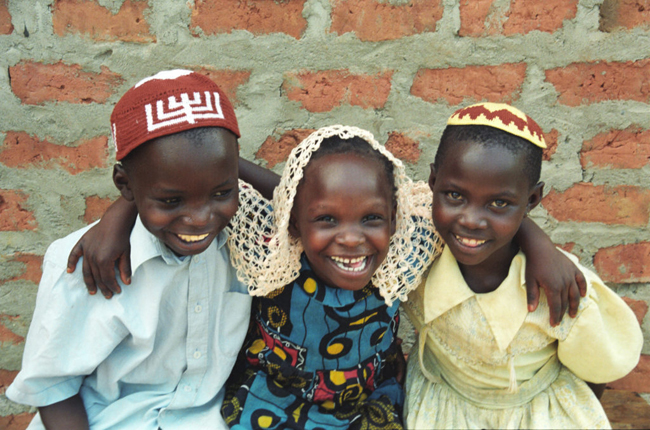

SAN DIEGO — When thinking about Jewish communities around the world, most of us probably don’t give much thought to Uganda. But tucked away in the Savannah, over very rough roads, live the Abayudaya. Like the rest of the world, they are also affected by the current pandemic. Under the same lockdown rules, most Abayudaya are unable to go to their jobs to provide for their families. The worldwide pandemic has hit them hard because, as meager as our stimulus checks might seem, their government provides bubkes. And unlike many of us, working remotely via Wi-Fi is simply not an option.
Shekol Yisrael areivim zeh bazeh שכל ישראל ערבים זה בזה
“The whole of Israel is responsible for one another.” (Talmud, Shevu’ot 39a)
Their plight inspired a group of cantors and rabbis involved in Cantors.org to put together Abayudaya Unity: A Concert Event to Benefit the Jews of Uganda. I watched a re-broadcast on Wednesday evening on Facebook.
Still sheltering in place, songs were recorded in home studios interspersed with clips from their travels to Uganda. Each one spoke with great affection and admiration for the Abayudaya people. They live in very humble conditions, yet their bright eyes and smiles are infectious as they bid us Shalom.
They have a great love of Torah and davening. Music is central to their day to day lives, incorporating vivacious drumming and dancing into the Psalms. And like Moses before the burning bush, they unshod their feet upon entering the sanctuary.
Im ein kemach ein Torah ים עין קמח עין תורה
“Without food, there is no Torah.” (Pirke Avot 3:17)
A point that they hammered home over and over was that this is not simply a difference of a greater or lesser budget. This is life and death. For the Abayudaya, hunger is an even deadlier threat than the virus itself. Many survive by eating just one small meal a day. Some subsist on sugarcane. Others resort to begging and stealing. The bags of rice and flour that are brought to them “are like manna from Heaven.”
The Abayudaya don’t want to rely solely on handouts. They are industrious and seek to be self-supporting. Their communities make soap and reusable sanitary pads. They travel throughout the region teaching hygiene and health education. They also make and sell beautifully crafted tallit bags and mezuzot. But right now, they need our help in order to make it through this crisis.
You can enjoy this concert and learn more about the Abayudaya by visiting https://www.cantors.org/abayudaya/ If you are comfortably set and not relying on food banks yourself, please consider making a donation. As Neshamah Carlebach said, “If you hear someone crying, it is because you have been uniquely chosen to dry their tears.”
*
In the photo above, Igaal, 9 (left), Dafuna, 6 (center), and Simcha, 8 (right) pose with kippot and crocheted craft made by members of the community, 2003. Igaal and Dafuna are the children of Rabbi Gershom Sizomu and Tziporah Naisi. Simcha is the daughter of Hadassah Infant School Headmaster Aaron Kintu Moses, and Naume Sabano, President of the Abayudaya Women’s Association.
The Abayudaya are an African Jewish community in Uganda. “Abayudaya” means “Sons of Judah” in Luganda, their native language. Their founder was Semei Kakungulu, a Ugandan governor who founded the town of Mbale, now the third largest city in Uganda. In 1917, he began to study the Bible with Christian missionaries, but was inspired by the study of Torah. By 1919, he and his followers, numbering 3,000, circumcised themselves and declared themselves to be Jews. They began to observe Shabbat and the festivals. In the 1920s, contact with two foreign traders expanded their knowledge of Hebrew law and language.
Over the years, the Abayudaya faced many challenges, including the outlawing of Judaism and destruction of synagogues under the reign of terror of Idi Amin in the 1970s. Today, the Abayudaya are 600 strong, and continue to observe Shabbat, the festivals and fast days. They hold regular services in each of their six synagogues in Hebrew, English, and/or Luganda, and read from the Torah. They follow the mitzvot, including the laws of kashrut. The community runs a Jewish primary and high school, and a Sunday yeshiva.
In February, 2002, nearly 300 community members–whose Jewish ancestry often stemmed back four or five generations–had their status as Jews affirmed by a Beit Din from the United States.
*
Eric George Tauber is a freelance writer specializing in the coverage of the arts. He may be contacted via eric.tauber@sdjewishworld.com